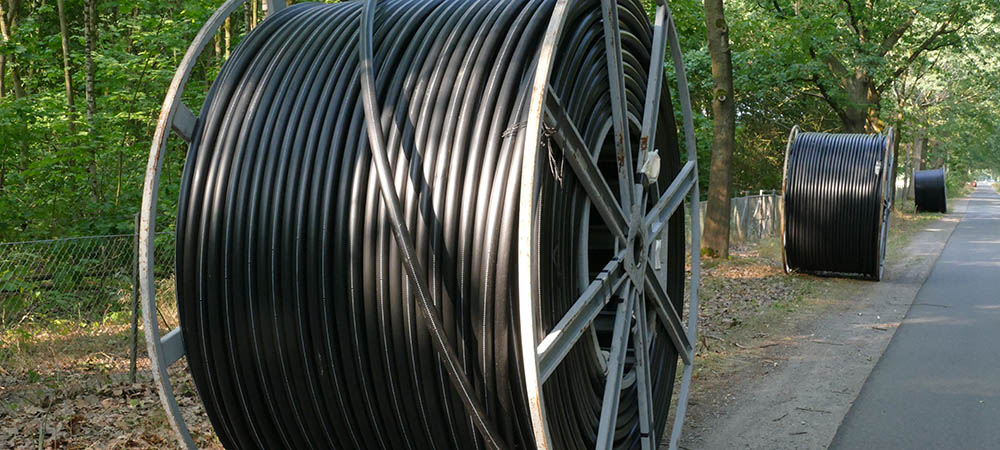
(Photo: Shutterstock)
During the summer of 2021, California saw encouraging steps aimed at ending the digital crisis, including historic legislation signed by Governor Newsom in July to invest $6 billion in broadband infrastructure and new federal funding in the pipeline.
At the same time, local communities and organizations have been working on the front lines, forging partnerships and initiatives to expand broadband to families and communities where sufficient service and access are lacking. Along with the recent state and federal investments, these advancements are noteworthy contributions toward a more equitable broadband landscape, which has been an ongoing focus of California Forward and the California Economic Summit.
The efforts touch both urban and rural areas. They include (among many other civic-minded efforts):
- The kick-off of “Oakland Undivided Forever,” a commitment by the City of Oakland and other partners to continue providing home access to the internet, computer devices, and cultural and competent technical support for students and their families.
- The formation of a new joint powers authority by Rural County Representatives of California, dedicated to advancing reliable, affordable high-speed broadband in rural areas.
- The formation of a new, collaborative Regional Broadband Consortium for Los Angeles County, which was approved recently by the California Public Utilities Commission.
Here is a brief look at each initiative:
Oakland Undivided Forever
When the COVID-19 pandemic led to distance learning last year, the Oakland community soon learned that less than 12% of students from low-income backgrounds had consistent access to a computer, internet, and technical support. The city, in partnership with others, mobilized an emergency response. Partners included Mayor Libby Schaff’s Office of Education, Oakland Promise, Oakland Public Education Fund, Oakland Unified School District, and Tech Exchange.
The goal was to ensure that all Oakland public school students in need – and their families – had the tools necessary to support online learning and internet-based interactions in their homes. In all, $12.5 million was raised, anchored by a $10 million contribution from Jack Dorsey, co-founder and CEO of Twitter. More than 29,000 laptops and 10,000 hotspots were distributed, and a “Tech Access Dashboard” was created to track student access to computers and connectivity.
As of this past summer, 98% of low-income students had access to a computer, internet connection, and culturally competent technical support.
These accomplishments were acknowledged during a July celebration. A Phase II Sustainability Model is now moving forward, which includes ongoing fundraising and exploring citywide broadband solutions.
Golden State Connect Authority
Rural areas of California have some of the most difficult broadband challenges, given their rugged terrains and smaller populations that often do not “pencil out” for traditional broadband providers. Rural County Representatives of California (RCRC), which represents 37 member counties, has been working for many years to bridge the digital divide in these areas, which grew more serious with the pandemic.
On August 18, RCRC announced that its Board of Directors authorized the formation of the Golden State Connect Authority, a joint powers authority that will promote rural broadband development. The effort builds on the enactment of Senate Bill 156, which established the state’s landmark $6 billion investment in broadband infrastructure.
According to RCRC, SB 156 provides new opportunities for county entities to operate broadband systems and contribute to other innovations including development of a state-owned, open-access middle-mile network. RCRC formed the new Authority to enable rural counties to join in leveraging these opportunities to expand broadband in rural counties.
All RCRC member counties are eligible to join the new Authority, which will be governed by elected supervisors from rural counties that choose to join, with day-to-day operations managed by RCRC staff.
LA Digital Equity Action League (LA DEAL)
Across the state, the California Public Utilities Commission has established “Regional Broadband Consortia,” which receive funding through the Rural and Urban Regional Broadband Consortia Grant Account of the California Advanced Services Fund. The consortia play a valuable, on-the-ground, and often unseen role in advancing broadband deployment, with a focus on unique regional needs.
On August 19, the Commission awarded a Regional Broadband Consortia grant to the LA Digital Equity Action League (LA DEAL), creating a new regional champion for broadband deployment. The applicant, Los Angeles County Economic Corporation (LAEDC) and its partner, UNITE-LA, joined to further the goal of advancing equitable broadband internet service in the Los Angeles region to unserved and underserved communities. A coalition of more than 100 partners from education, government, business, and other sectors are working together in the effort.
According to LAEDC, the LA DEAL Consortium will operate under the grant to convene stakeholders, help in identifying project opportunities and barriers to completion, pursue additional funding for broadband infrastructure, and ensure deployment in communities with the greatest needs.
Both LAEDC and UNITE-LA are members of the California Stewardship Network.
During the 2021 California Economic Summit on Nov. 9-10, the Ensuring Broadband For All Work Group will focus on regional efforts to close the digital divide, including supporting the work of the state’s Regional Broadband Consortia. The California Forward Action Fund recently urged legislators to maintain a continued funding stream for these groups.

